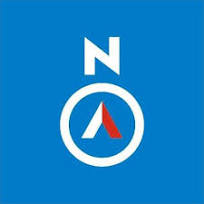Browse transcripts » National Archives / Archives South Hollandarchive access 1.04.02, inventory number 3218, page 1056
Summary (also from the next page)
Due to many sick people on board, most of whom were infected with scurvy, it was suggested to set up a kind of hospital on shore. The governor's house on the beach could be used for this. Any improvements needed would be at their own cost. 2 ship's doctors and 2-3 young helpers, along with their cook who prepared food for the sick, would be allowed on shore. They had to stay within the fence of the lodging house to prevent problems.
For security, day and night watch would be kept by:
- 1 sergeant
- 2 corporals
- 12 common soldiers
Guards would be posted in front and back to prevent attacks from natives, theft, and unauthorized communication. If the Captain preferred to treat his sick on board, this would be safer and cheaper. No healthy people were allowed on shore except when the Captain wanted to take a walk, for which he needed to give notice in advance. He would then be picked up and accompanied, but not allowed inside the fort or to stay overnight on shore.
Transcription
er op dien bodem zijn, welke meerendeels door
schurbuticque ziektens geinbecteerd zijn,
zal het mogelijk niet te ontleggen weezen,
haar een soert van hospitaal aan de wal te
vergunnen, wanneer daar toe het zo genaemde
gouverneurs huijs /:'t geen dog geheel afgezon„
„dert aan de strant kant legt :/ kan werden
gebruijkt, moetende in dat Cas, 't geen daar
aan tot meerder gemak en gerijf mogt
komen te mankeeren; ten haren kosten werden
verbeeterd, en zal in dat geval de twee
scheepsmeesters en 2. â 3. Jongelingen
nevens haar kok, die de spijle voor de
Jmpotenten moet berijdt getollereert werden
aan de wal te komen, dog haar houdende bin„
„nen het bereik der pagger van dat logie„
ment zonder elders te gaan, om alle quade
gevoegen en onheelen te prevenieeren, ook
zal in dit gevol zo bij dag als nogt een
Ten tweeden.
Sergeant)


Bronvermelding
National Archives / Archives South Holland, archive number 1.04.02, Inventaris van het archief van de Verenigde Oost-Indische Compagnie (VOC), 1602-1795 (1811), inventory number 3218, Heren Zeventien en kamer Amsterdam, INGEKOMEN STUKKEN UIT INDIË, Overgekomen brieven en papieren, Overgekomen brieven en papieren uit Indië aan de Heren XVII en de kamer Amsterdam, Overgekomen brieven en papieren uit Indië aan de Heren XVII en de kamer Amsterdam, 1769. Derde boek: Batavia, derde deel
Artificial Intelligence (AI)
The summary is created by the computer based on a language model.
Both artificial intelligence tasks are not perfect, but often more than sufficient so that the historical document becomes understandable.

